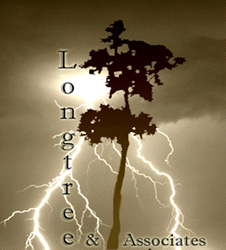Cultural diversity in American society and, indeed, the world, has been acknowledged with increased frequency over the past several decades. This seminar is a direct response to the challenges facing long term care professionals who are broadening their skill sets in cultural competence and ethical conduct essential for effective response to this diversity. The course is designed for Nursing Home Administrators, Assisted Living Administrators Social Workers, Case Managers (beginning and intermediate) and other professionals who work with the elderly in the long-term care setting.
Archives: FAQs
A Weighty Issue in Senior Care: Obesity and the Elderly Patient
This seminar will help social workers, nurses and all long term care professionals enhance their understanding of their role in assisting residents with morbid obesity. Attendees will gain information on the most current interventions and treatments for these patients, and will increase their understanding of the psycho-social, nutritional and physical aspects of obesity.
What’s in Your Toolkit? Develop Multidisciplinary Tools to Sustain the Spirit & Reduce Isolation Among Older Adults
This course is designed to help participants identify the physical, practical, spiritual and creative challenges and needs of older adults, and to discover a variety of tools that can be used to sustain the spirit and decrease feelings of isolation in older adults. A multidisciplinary approach will encourage participants to view the needs of older adults from different perspectives in an effort to meet the needs of the “whole person”.
Emotional Care and Mental Health of the Elderly During Disasters and in Recovery
Disaster response and crisis management in long term care settings, must effectively address the emotional, mental and physical aspects of the geriatric and disabled patient. This course reveals strategies and techniques that the social worker and other health care professionals can employ when dealing with the elderly and disabled during a disaster and its recovery period.
From High School to Old School: Elders who Bully and Strategies to Intervene
This course examines the three most common types of bullying behaviors exhibited in many eldercare settings: physical bullying, emotional bullying and social bullying. Health Care Professionals will learn effective interventions, strategies and best practice techniques that will assist them in recognizing the signs of bullying and how to effectively avert a potential bullying episode.
Protecting Our Seniors: Understanding Elder Abuse
Elder abuse is an increasingly important concern for professionals who are responsible for the physical, emotional and financial well-being of the seniors in their care. This course will assist social workers in recognizing the signs and symptoms of various forms of elder abuse and gaining strategies for responding to elder abuse.
7 hour Comprehensive Alzheimer’s Disease & Dementia Care Course National Council of Certified Dementia Practitioner Approved
Every 67 seconds someone in the United States develops Alzheimer’s Disease or a related form of dementia. This course serves as a platform for social workers and other professionals to gain a deeper understanding of various aspects of the disease, including diagnosis, treatment, emotional and behavioral management, and caregiver support. This course, developed and approved by the National Council of Certified Dementia Practitioners, is a prerequisite toward becoming a Certified Dementia Practitioner.
(Approved for NAB CE credits in-person and distance learning)
Alzheimer’s Disease: New Assessment and Treatment Strategies
Alzheimer’s Disease is the sixth leading cause of death in the United States, with one out of three seniors dying with a diagnosis of this condition or that of a related dementia. These sobering statistics indicate an ever-growing need for timely, accurate and informative education about this devastating condition affecting so many.
The Many Faces of Dementia, Alzheimer’s and other Memory Care Diseases
Social workers and other health care professionals are called upon to serve an ever-increasing volume of patients presenting with some form of dementia, whether due to impairments such as Alzheimer’s Disease, or due to brain injury. This course examines myriad aspects of dementia and identifies assessment tools to help the professional distinguish between dementia, delirium and depression. This course is designed for Social Workers, RNs and other professionals who work with the elderly in the long term care setting.
Conversation and Considerations: Ethical Ways in Assisting the Patient with Advance Care Directive Decisions
This seminar reviews how social workers and other health care professionals can provide effective and ethical guidance and assistance to individuals and their loved ones who are confronting advanced care planning decision-making. Attendees will gain an understanding of the key steps in assessing a resident’s end of life care plan needs and the barriers confronting self-advocacy, as well as identify strategies to assist in developing an advanced care plan.
